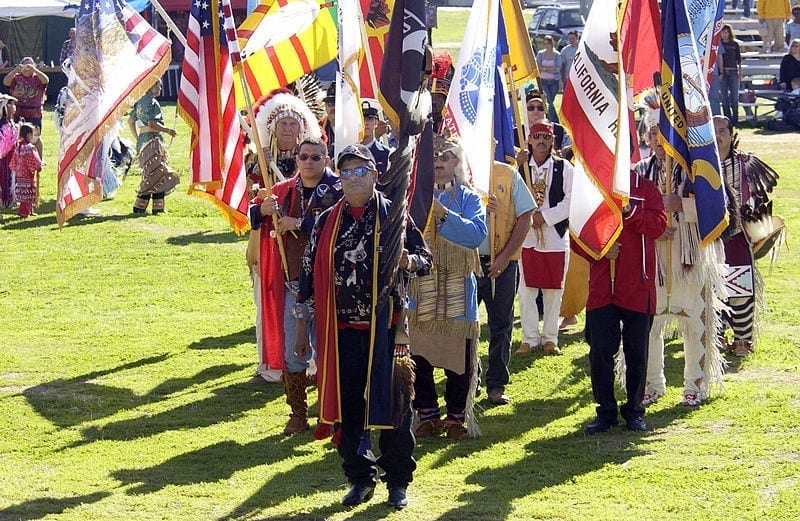The GOP and their appointees take aim at Native rights in the voting booth and in adoption court. The good news? Women are fighting back in record numbers!
With our world and the species on it in deepening peril from ecological and cultural destruction, we need better leadership and new ideas for how to preserve what we have left while fighting to reclaim lost ground. Two crucial strategies in this existential struggle are to listen to, and empower, indigenous people worldwide. As living links to wiser lifeways, native groups have a lot to teach the rest of us, if we’re willing to learn, and, importantly, share power. Unfortunately, because that would mean fewer votes and a smaller cultural share for American conservatives, the GOP and their appointees are striking back, taking aim at native rights with both long and short term strategies for dialing back Native American cultural heritage and political clout.
In the short term, conservatives in North Dakota are taking aim at native rights through disenfranchisement. The Supreme Court recently declined to overturn a North Dakota law that requires voters to present ID with a current street address. This matters because not only are Native Americans over-represented among homeless populations in North Dakota and elsewhere, but because Native reservations often do not use street addresses. Tribal ID cards that don’t list addresses were valid for primary voting but will not be valid in the general election, which is potentially (and understandably) confusing. This decision may also open the floodgates for other states, like Arizona, that would really prefer that the “wrong sort” of people find it difficult to vote.
The Tribes aren’t standing still for this insult, though. If anything, further disenfranchisement may well unite and galvanize voters in Native country. There’s a frantic effort on North Dakota reservations to get people what they need to vote in time for the rapidly approaching general election. Various tribes, including the Standing Rock Sioux (remember them?) are helping their members obtain street addresses and offering transportation to the polls. Several U.S. Senators, including Heidi Heitkamp (D-ND), introduced the Native American Voting Rights Act of 2018 to help. Naturally, there are no Republican co-sponsors signing up for this effort.

To really take aim at Native rights and culture for the long term, though, a “better” strategy is to break up familial, generational, and cultural continuity. In a decision nauseatingly reminiscent of the 19th century boarding schools that stripped Native children of their cultural identities, U.S. District Judge Reed O’Connor (a George W. Bush appointee) ruled that the Indian Child Welfare Act of 1978 violates the Fifth Amendment’s equal protection guarantee – for white people!
A 1977 Senate report found that 25-35% of all Native American children had been taken away from their families, and of those children, 85-90% who had been placed in adoptive or foster homes were given to non-Native families. Losing a third of a generation is rough on any minority culture, so the 1978 Act sought to give preference to adoptive parents who were part of the child’s own extended family, and then a family from the same tribe, and then Native families from another tribe. A non-Native family isn’t necessarily barred from adopting a Native child, but the court would have to show “good cause” that the child couldn’t or shouldn’t be placed with a Native family first. It was a high bar to meet.
O’Connor’s decision takes aim at Native rights by lowering that bar. By rejecting the notion that the U.S. has special obligations to the First Nations, O’Connor objected to the idea that any Native family could take precedence over any non-Native family in adoption cases. If a family from a different tribe could adopt first, why not any family at all? It’s a divide-and-assimilate technique cut from the same cloth as a recent Republican move to restrict LGBT families from adopting children, or separating immigrant families at the border and adopting the children off to American families.
These two situations are not the only critical issues facing Native American communities, but the good news is that people are organizing against existential threats like these. Native women, in particular, are running for office in record numbers. Right now, four Native American women are vying to be the first one elected to Congress. Three more are running for governor, and 31 for state legislatures. Perhaps the most truly conservative action we can take is to support these women and our First Nations, because it’s the right thing to do, but also as if our lives depended on it.
Related: Ponca Reclaim Land at Historic Crossing


Join the conversation!